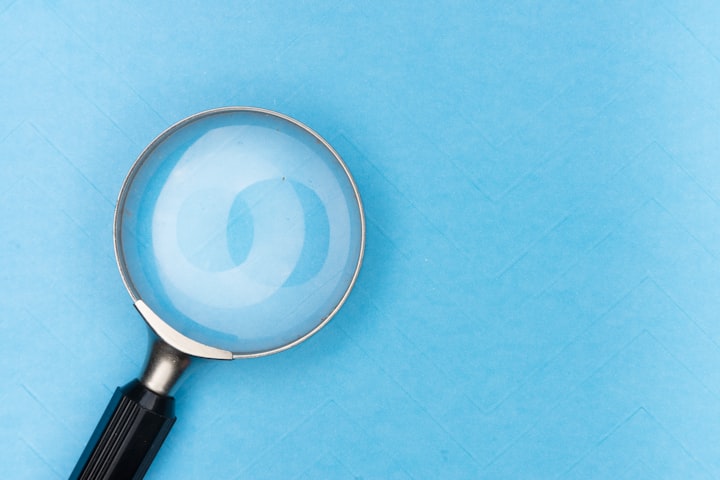How Do You Find The Right Sources For Your Research?
Despite their lack of presence

The search patterns vary a lot and differ, as there is scientific and non-scientific research, normal and unusual search, there is a Google search for the latest releases of songs by the artist, or a search for the best shawarma restaurant in your residential area, and other types of search types and ramifications, The answers to the question how to search are different.
However, sometimes there is a need to have a complete record of the references used in a research, as it is not only important to take from a reference and quote from it, as much as it is important to document the reference as a tight document that anyone who reads can view it for further information.
Whatever the topic of the research, and no matter how different it may be between a research paper, a master’s thesis, or a sober refereed article, it is necessary to take steps to be taken in the process of rooting for it and finding the appropriate sources, and perhaps here we mention some of them..
First: see the notes.
There are refereed sources and there are ordinary sources that are nothing more than news, for example, Wikipedia is the prominent regular source for the majority of the material that is presented, and the primary sources are the refereed ones are those at the bottom in the footnotes, and refer to a book or a reference. In order to differentiate between them and those that are just news and quotes from an unimportant site, we should know that the real source contains living testimonies, historical documents or scientific studies that have occurred previously.
Attention should also be paid to the author of the study or the writer responsible for the reference, especially in some controversial topics in which fraud may abound and distort the facts in favour of certain groups.
If we want to summarise and control the idea, the first thing that should come to your mind in the event of a lack of sources, is to go to the footnotes mentioned by some pages or sites, as they help in entrusting the largest original sources.
Second: Data Mines on the Network.
Search engines have become a fertile environment for various types of content that you want to obtain, but there are also special engines and data mines, you can search within them depending on the type of material you want to delve into, for example, in the medical field, the search engine Pubmed is one of the most prominent mines to access Thousands of medical research and databases. Although some of them may require a monthly subscription, or a small amount, many of their materials are free and available to everyone.
In addition to this, and what is often neglected and left out, are the websites of universities and research institutes that publish their research personally on their websites, to include master's theses or doctoral theses for those studying there. These available references can also be made use of, and in some cases, it may be useful to personally contact the researcher and ask him about some problems if necessary.
It should be noted a little about the importance of the timing and modernity of these studies. Sometimes there are old data that did not target large segments of the required sample. Therefore, it is necessary to scrutinise a little and read the general description before taking these theses as reliable sources.
Third: The book... the researcher's loyal friend.
The book is indispensable, yesterday and today, and after a hundred years, the book is there and will remain. The way it is presented may vary; To be a video, whether visual or holographic or I don’t know what, but it will not disappear and will remain in its same position, and on the contrary, the global market for books is constantly increasing, and the book trade - to be a writer and sell your books and become the bestseller- is one of the most active sectors, except The material aspect is not everything, and here we mean the reference cognitive aspect of books.
There are university books that are specialised in the field under study, there are less specialised books that the public reads for information purposes, and there are paragraphs within books in a more general field that may benefit the researcher. From all of the above, the researcher’s job remains “research” itself! Because this quality is basically what will be awarded the academic certificate that he aspires to reach. If the “search” feature was present for everyone, we would have 7.7 billion research with the number of every human on the surface of this planet!
But it remains the preserve of certain minds, in which books help them to reach their desired ends.
Fourth: Ask someone who knows best.
What disappointed me consult! Bigger than you by a day, I know you by a month! In knowledge there is no shame, ask everyone, learn from everyone, try to squeeze everyone in order to get information from them and learn how to look for sources. Regardless of your knowledge and knowledge, there must be people who know more than you or at least know the way to be a scientist, ranging from office custodians, to archive managers, to researchers supervising your thesis, to your classmates and peers, to your peers outside Your university from other universities and institutes. And many others..
The important thing is not to be shy and try to ask, as the philosophers said in the old days: wisdom lies in the question, not in what the answer is. Try to ask a lot, others know a lot and have gone through what you've definitely been through. Ask them how the study is, what resources are most important, where they are, where you can find them or similar ones, and what to do if you can't find them. All these questions form the way of your journey to research and achievement. In the end, all the agonising fatigue is forgotten and the experience and your result remain.
Fifth: focus on context.
When your research project is related to the field of small projects such as small food kiosks and how it relates to the financial income of their owners, for example, it is necessary to focus on the proposed research context and try to expand it a little, for example, these projects are related to the economic situation of their owners, then it is necessary to search in the scope The economist drew comparisons between capitalism and communism. Is the motive for such projects to support his newborn little child? Is there a connection with the topic of birth control?
The idea is to try to look at the issue from the outside rather than the inside. Then the vision expands more and can be approached from more than one side, and I think that in some way this is the advantage of the researcher and the thesis holder over other people, that he can see what others do not see and link what others do not, and that is why he obtains a master’s degree or a doctorate and looks at him with prestige and dignity.
Websites and their ratings are also useful, as some organisations with an Org domain, for example, help. In adopting certain trends and focusing on publishing about everything that surrounds it. To have a lot of statistics and accurate data. In addition to specialised search engines, you can use the keywords or semantics that you need within the search.
All of these tools constitute papers in the researcher's hands to expand his resources and work efficiently on his material that he intends to present.
About the Creator
Judith Isidore
I'm happy to share my stories with Vocal media community.






Comments
Judith Isidore is not accepting comments at the moment
Want to show your support? Send them a one-off tip.